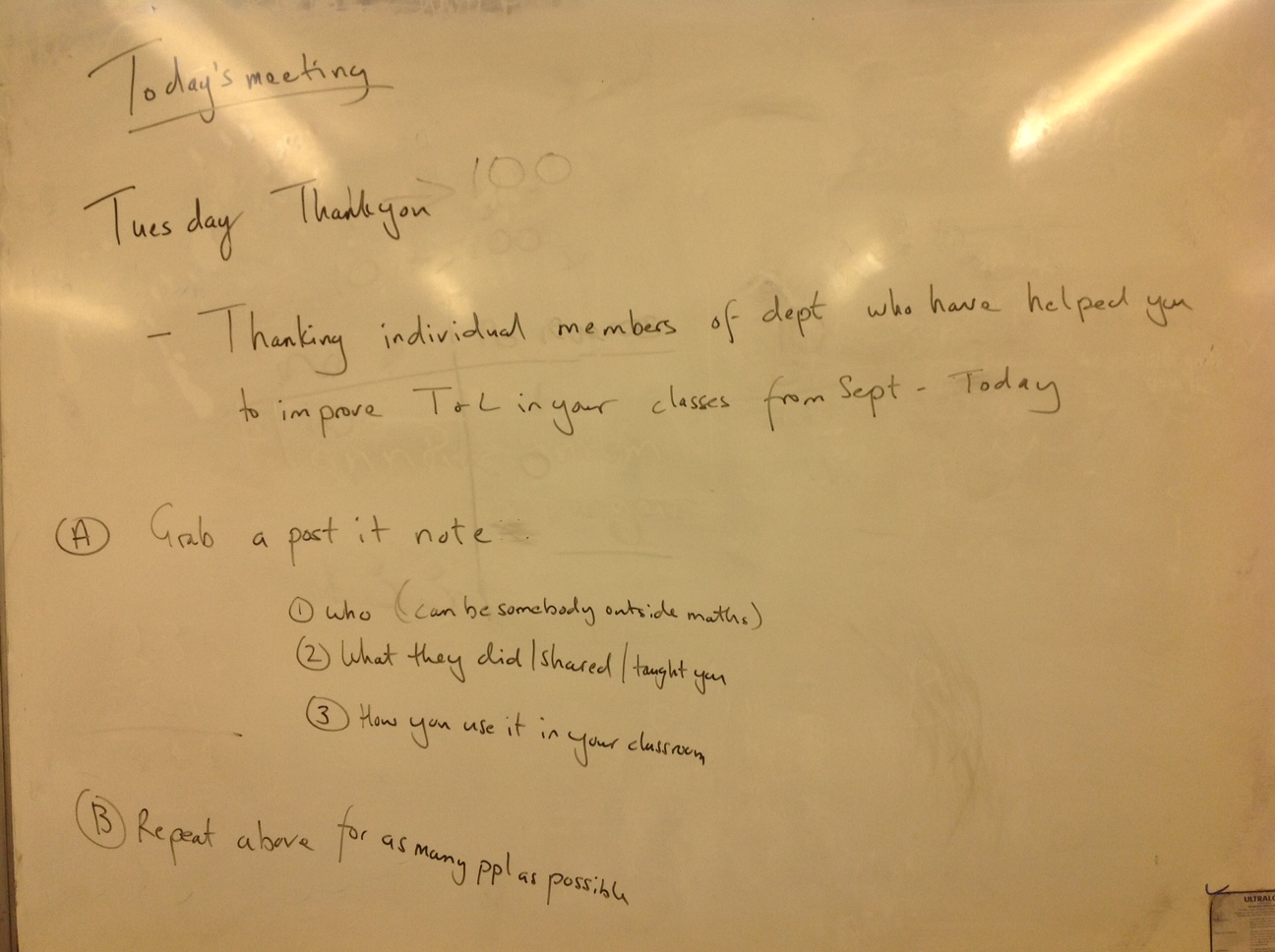Placing the classroom back at the centre of the (leadership) universe
This blog post could be considered a response or maybe even a companion piece to one written by Christopher Waugh (@edutronic_net), a teacher and thought-provoking educational blogger. Chris’s article was about the need to evaluate and constantly improve what happens in the classroom in order to improve outcomes for students.
The bit that stood out for me as a school leader was
“Let’s face reality. As teachers, we are at the front-line. We work for our students. We are paid by the taxpayer. Everyone else in the chain; the support staff, the SMT, the Headmaster, ofsted, ofqual, the examining board, the Department for Education and the politicians work for us, to support US to do a better job in ensuring the best possible outcomes for our students. If any of these agents are getting in the way of this, we must work to mitigate their impact. This is our responsibility and our gift. Impertinent as it may seem, my internal monologue when engaging with those support agencies is “Your work is designed to support mine – how effective are you at this?”
I whole heatedly agree with what Chris says and want to rephrase it from the point of view of a school leader…
As school leaders, we are paid by the tax payer to ensure excellent outcomes for people’s children. However we can not do this alone. We have to inspire, enable and coordinate many people in a chain including support staff, teaching staff, parents and outside agencies to work to together in order to achieve the best for every student in our school. It is our duty, our responsibility, our privilege. Everybody in the chain is important but the class teacher is our foot soldier, our infantry- nothing great can happen if we do not give them space and support them. My internal monologue as a school leader needs to be
“My work is designed to support and enable yours- how can I enable you and provide the structures to allow you to be as effective as can be?”
Many school leaders, including myself at times, get caught in the monitoring and accountability cycle. These things have their place. it is important to be aware of where your team, department, school, authority, country is but only so that you can build on that and become better. Accountability should never be an end in itself, nor should it get in the way of the main thing- creating conditions for long term excellent learning.
Teacher quality is the number one driver for improvement in schools. It is followed by the quality of leadership. As leaders we need to remember that we are there to allow teachers to do their job well and to provide the resources and tools for them to do it better.
If we are not sure what this involves- as a start we could try asking our staff. If they don’t know then we could look at everything that we do and consider “How does this impact on teaching and learning? How will this help my staff to become better educators?”
I am new to senior leadership and still run a department but I intend to look at everything through this prism. The most obvious thing for me was meetings. I came out of many meetings that I chaired feeling disappointed and depleted and unable to say how the past 30 min- 1 hour would have any impact on students, so I changed them.
I decided that every meeting with my department would have a teaching and learning focus, decided by them. I used my informal learning walks to identify strengths of every teacher and then approached individuals privately to lead a session regarding that strength on a weekly basis. This had a dual effect of sharing good practice whilst letting staff know that I valued them. At the end of last term our final meeting was a reflection and “Thank you” session that I amended from an idea that Tom Sherrington (@headteacherguru) had tweeted.
Meetings had gone from a dreary, pointless habit done in the same way that had always been done to a dynamic exchange of ideas which directly impacted on teacher’s work in their classrooms. We will be changing the format again this term to suit our changing needs.
The positive feedback from staff ( 9 teachers generated 30 diff post-it notes in about 7 mins) suggested that I had done my job and I will continue to find ways to ensure those I am responsible for and equipped to do theirs in increasingly better ways.


3 Comments
Christopher Waugh
6th January 2013 at 4:46 pmThis is a beautiful thing. I am honoured to be mentioned and I agree with everything written herein.
ieshasmall
6th January 2013 at 5:02 pmThanks Chris, I don’t always get it right but it’s usually prominent in my mind. I know that I can only be truly effective as a leader via other people- its one of the challenging and rewarding things about leadership in any profession.
True beliefs trump fad worship | The random musings of iesha small…
15th October 2013 at 7:05 am[…] up to individual teachers’ professional judgement. It’s the job of senior leaders to create conditions for this to happen, not prescribe the minutiae of how it should be done. Effective teaching ought to lead to the […]